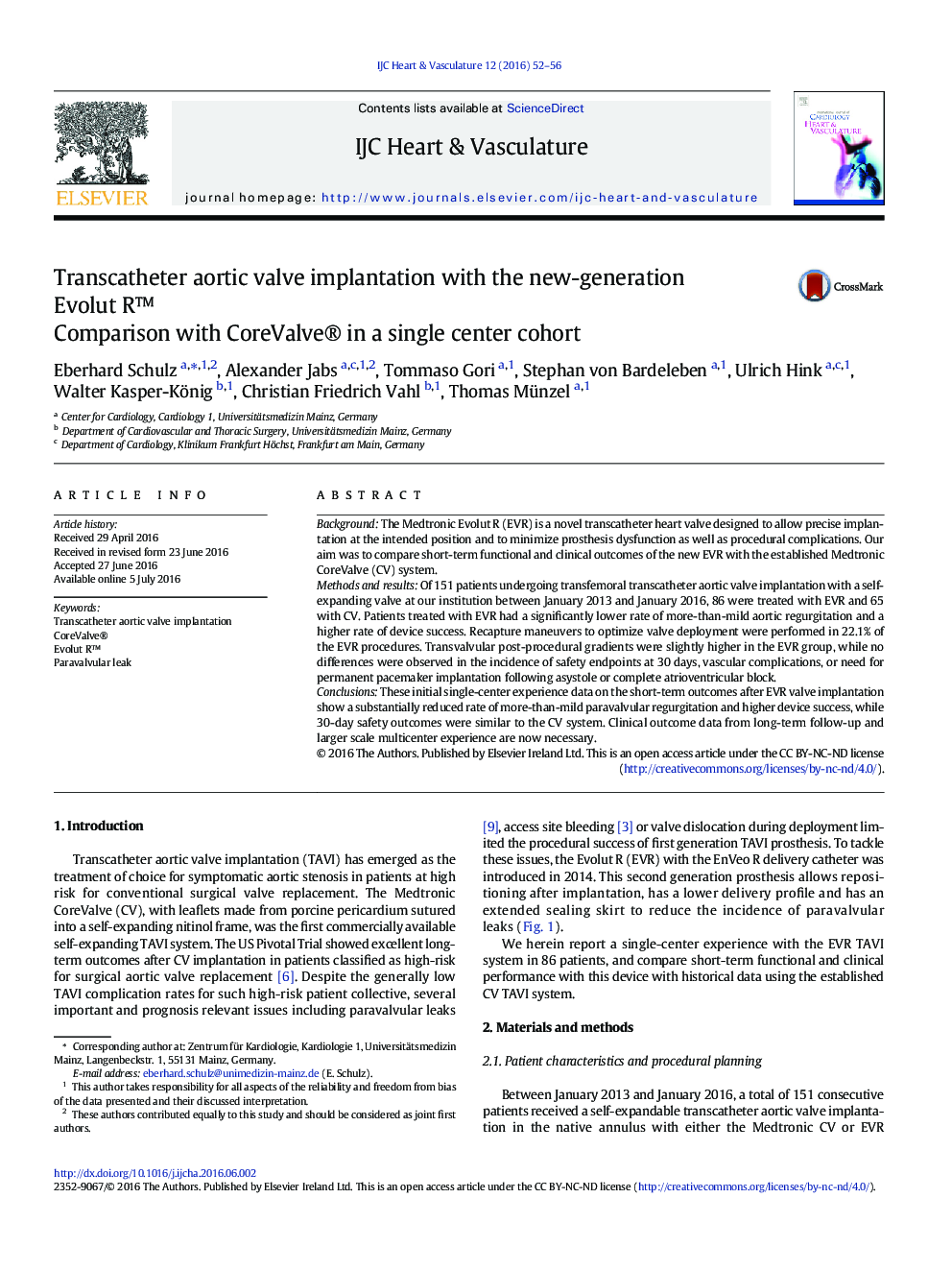| Article ID | Journal | Published Year | Pages | File Type |
|---|---|---|---|---|
| 2926911 | IJC Heart & Vasculature | 2016 | 5 Pages |
BackgroundThe Medtronic Evolut R (EVR) is a novel transcatheter heart valve designed to allow precise implantation at the intended position and to minimize prosthesis dysfunction as well as procedural complications. Our aim was to compare short-term functional and clinical outcomes of the new EVR with the established Medtronic CoreValve (CV) system.Methods and resultsOf 151 patients undergoing transfemoral transcatheter aortic valve implantation with a self-expanding valve at our institution between January 2013 and January 2016, 86 were treated with EVR and 65 with CV. Patients treated with EVR had a significantly lower rate of more-than-mild aortic regurgitation and a higher rate of device success. Recapture maneuvers to optimize valve deployment were performed in 22.1% of the EVR procedures. Transvalvular post-procedural gradients were slightly higher in the EVR group, while no differences were observed in the incidence of safety endpoints at 30 days, vascular complications, or need for permanent pacemaker implantation following asystole or complete atrioventricular block.ConclusionsThese initial single-center experience data on the short-term outcomes after EVR valve implantation show a substantially reduced rate of more-than-mild paravalvular regurgitation and higher device success, while 30-day safety outcomes were similar to the CV system. Clinical outcome data from long-term follow-up and larger scale multicenter experience are now necessary.
